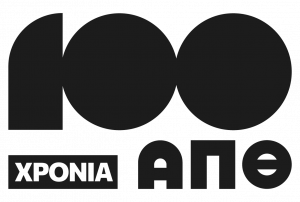Dear Computer Vision, Deep Learning and/or Autonomous systems engineers, scientists and enthusiasts,
you are welcomed to register in this CVML Short e-course on ‘Computer Vision for Autonomous Systems’, 5-6th May 2021: https://icarus.csd.auth.gr/spring-cvml-short-course-computer-vision-for-…
It will take place as a two-day e-course (due to COVID-19 circumstances), hosted by the Aristotle University of Thessaloniki (AUTH), Thessaloniki, Greece, providing a series of live lectures delivered through a tele-education platform. They will be complemented with on-line video recorded lectures and lecture pdfs, to facilitate international participants having time difference issues and to enable you to study at own pace. You can also self-assess your knowledge, by filling appropriate questionnaires (one per lecture). You will be provided programming exercises to improve your programming skills.
It is part of the very successful CVML short course series that took place in the last three years.
The short e-course consists of 16 1-hour live lectures organized in two Parts (1 Part per day):
Part A lectures (8 hours) provide an in-depth presentation of 2D and 3D Computer Vision theory and applications in the above-mentioned diverse domains, primarily for semantic 3D world modeling and localization. Computer Vision starts with a detailed presentation of digital image/video fundamentals and image acquisition and camera geometry, including camera calibration. Then, two lectures on: a) Stereo and Multiview imaging and b) Structure from motion will provide the theoretical and algorithmic tools to recover 3D world models from images. They will be used on Localization and mapping that is of primary importance in Autonomous Systems and Robotic perception. This is complemented by Neural techniques for recovering depth information and 3D world modeling, even from monocular images. Deep semantic image segmentation will conclude this part, by providing DNN methods both to label and segment regions, e.g., roads and targets, e.g., cars, pedestrians.
Part B lectures (8 hours) will start with an overview of Autonomous Systems Sensors. Then , it will provide an in-depth presentation of Computer Vision theory and applications in autonomous systems, particularly as related to target detection, tracking and object pose estimation. Applications will be presented for Multiple Drone Systems Autonomous Car Vision and Autonomous Marine Surface Vessels. Finally, CVML programming tools (e.g., DNN frameworks, BLAS/cuBLAS, DNN and CV libraries) are overviewed, as they allow fast application of all the above knowledge in almost any application domain.
Course lectures
Part A: Computer Vision (first day, 8 lectures)
Digital images and videos
Image Acquisition. Camera Geometry
Stereo and Multiview Imaging
Structure from Motion
3D Robot Localization and Mapping
Neural 3D world modeling
Image/Point cloud registration
Deep semantic image segmentation
Part B: Autonomous Systems (second day, 8 lectures)
Autonomous Systems Sensors
Deep object detection
Object Tracking
Object Pose Estimation
Multiple Drone Systems
Autonomous Car Vision
Autonomous Surface Vessels
CVML Software Development Tools
Though independent, the attendees of this short e-course will greatly benefit by attending the CVML Short e-course on ‘Machine Learning and Deep Neural Networks’ 27-28th April 2021:
http://icarus.csd.auth.gr/spring-cvml-short-course-machine-learning-and-…
You can use the following link for course registration:
http://icarus.csd.auth.gr/spring-cvml-short-course-computer-vision-for-a…
Lecture topics, sample lecture ppts and videos, self-assessment questionnaires and programming exercises can be found therein.
For questions, please contact: Ioanna Koroni
The short course is organized by Prof. I. Pitas, IEEE and EURASIP fellow, Chair of the IEEE SPS Autonomous Systems Initiative, Director of the Artificial Intelligence and Information analysis Lab (AIIA Lab), Aristotle University of Thessaloniki, Greece, Coordinator of the European Horizon2020 R&D project Multidrone. He is ranked 249-top Computer Science and Electronics scientist internationally by Guide2research (2018). He is head of the EC funded AI doctoral school of Horizon2020 EU funded R&D project AI4Media (1 of the 4 in Europe). He has 32200+ citations to his work and h-index 85+.
AUTH is ranked 153/182 internationally in Computer Science/Engineering, respectively, in USNews ranking.
Relevant links:
1) Prof. I. Pitas:
https://scholar.google.gr/citations?user=lWmGADwAAAAJ&hl=el
2) Horizon2020 EU funded R&D project Aerial-Core: https://aerial-core.eu/
3) Horizon2020 EU funded R&D project Multidrone: https://multidrone.eu/
4) Horizon2020 EU funded R&D project AI4Media: https://ai4media.eu/
5) AIIA Lab: https://aiia.csd.auth.gr/
Sincerely yours
Prof. I. Pitas
Director of the Artificial Intelligence and Information analysis Lab (AIIA Lab)
Aristotle University of Thessaloniki, Greece
